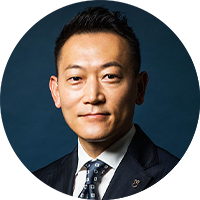Coach's VIEW is a business column authored by executive coaches in COACH A, aimed at providing valuable insights and effective approaches for leveraging coaching to foster organizational and leadership development. The column draws on the latest coaching trends and data, as well as insights from notable global publications on coaching.
Are We Really Lacking Leaders - Or Just Not Seeing Them?

(Original article written on October 9th, 2024)
Today's business environment has entered an era of rapid and continuous change, marked by uncertainty. For organizations to achieve sustainable growth in such conditions, having strong leadership is essential. Yet, many companies face a serious issue: a shortage of capable leaders.
The 2020 Deloitte report, Global Human Capital Trends, highlighted that around 80% of executives feel there is a shortage of leaders and emphasized the urgent need of developing the next generation of leadership.
But is there truly a shortage of leaders?
"We Need More People"
In 2022, I took on a leadership role in Shanghai to support Japanese business leaders there through systemic coaching, with a mission to drive organizational transformation. As I engaged with the dynamic Shanghai market and listened to local leaders, I felt inspired by their stories. At the same time, a clear thought crossed my mind: there's so much potential here, but we need more talent to succeed.
Consequently, I requested our headquarters in Japan to send more personnel. I already had a clear image in my mind of the type of individual we needed; specific skills, certain levels of experience, someone who could hit the ground running.
However the response from headquarters was not what I expected. They recommended a candidate with far less experience than I'd anticipated. Let's call him 'Mr. A'. He didn't fit the image I had envisioned.
Is It His Problem, or Mine?
Upon hearing the name, my immediate reaction was, "Mr. A isn't the right fit." I found myself thinking about how to decline the assignment and began searching for reasons why it wouldn't work. I even imagined scenarios where things might go wrong, only to justify my reaction.
But then, I paused. I noticed the discomfort of constantly trying to disqualify him. And a question came to mind:
"Is he really the problem?"
I realized something crucial: in my mental framework of this situation, I was focusing solely on him and not on myself. I had placed myself outside the equation, merely observing. This led to a another realization:
"Maybe the issue isn't with the person, but it's how I'm choosing to perceive the person."
Success wasn't about whether Mr. A was ready, it was about whether I was prepared to develop him, to collaborate with him, to help him thrive.
From "What's Missing?" to "What Are Their Strengths?"
The following morning, I contacted headquaters with a different message:
"Please allow Mr. A to come here. I'll take full responsibility for his development."
At that moment, I reconnected with my role as a leader.
My mindset went through a complete shift. The previous night, I had been focused on what Mr. A lacked. Now, I was asking new questions:
- "What are his strengths?"
- "What responsibilities can I entrust him with?"
- "What positive impact could he have on our team?"
Ultimately due to other circumstances, Mr. A did not relocate to Shanghai. But the experience taught me a powerful lesson: leadership development is not just about evaluating others, it's about how we think as leaders. My perspective was the limiting factor, not the people around me.
That shift in thinking also helped me recognize more opportunities to work with our local team in Shanghai. Eventually, I decided not to request additional people from Japan. We had what we needed, we just had to look at it differently.
Who Creates Leaders?
Let's revisit the initial question:
Is there truly a shortage of leaders?
If you find yourself believing there aren't enough capable leaders around you, consider this: could it be your own perception that's limiting what you see?
Of course, this won't apply in every situation. But if you can reframe the "leadership shortage" as your own challenge, you may start to see the people around you in a new light, and recognize untapped potential.
The development of future leaders is in your hands.
If you feel your team lacks leadership, consider becoming a coach for them. Support their growth. Guide them. Partner with them.
The future of your organization's leadership may depend on you.
【REFERENCE】
*1 2020 Global Human Capital Trends Report. (n.d.). Deloitte China.
https://www2.deloitte.com/cn/en/pages/human-capital/articles/global-human-capital-trends-2020.html
*Regardless of profit, non-profit or intranet, secondary use such as copying, diversion, selling etc. is prohibited without permission.
Language: Japanese

